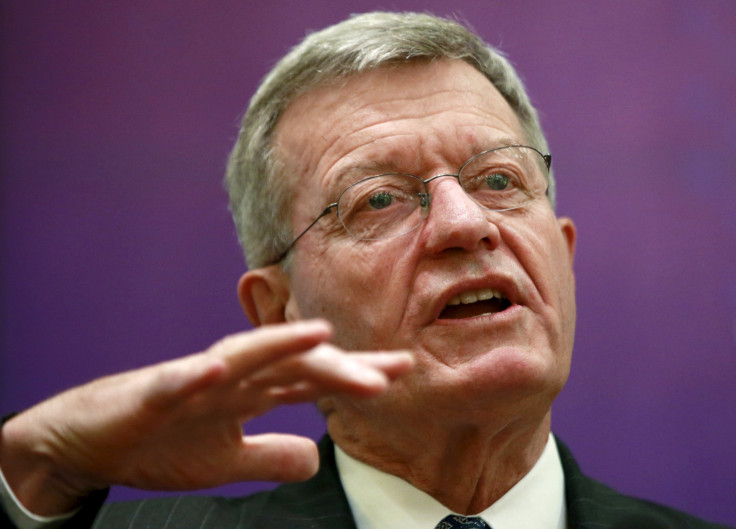South China Sea Dispute: US Ambassador Summoned By Beijing After American Ship Sails Through Disputed Zone

The Chinese government summoned U.S. Ambassador to China Max Baucus Tuesday in protest against a U.S. Navy patrol that sailed inside an exclusion zone established by Beijing around its internationally disputed man-made islands in the South China Sea, according to a Reuters report. Vice Foreign Minister Zhang Yesui called the patrol, which took place on Tuesday morning local time, "extremely irresponsible" and demanded that the U.S. immediately stop infringing on Chinese sovereignty and security interests in the region.
Chinese authorities said they had monitored the progress of the destroyer USS Lassen as it made its way toward the disputed waters, describing the actions as “illegal” and urged Washington, D.C., to “immediately correct its mistake.”
The U.S. deployed the USS Lassen to test China’s resolve over a group of islands its military built near the Spratly Island chain in the South China Sea, which neighboring countries say are designed to give Beijing sovereignty over the potential energy reserves under the seabed, the rich fishing grounds and overall control of the international shipping lanes that see up to $5 trillion of trade pass through annually. It also inhibits freedom of navigation at sea, which the U.S. cites as the primary reason it is challenging Beijing.
China tells US ambassador to stop "threatening Chinese sovereignty & security interests" https://t.co/Jqa31GhCnu pic.twitter.com/A6IpEBnToQ
— New York Times World (@nytimesworld) October 27, 2015U.S. Sen. John McCain, R-Ariz., chairman of the Senate Armed Services Committee, hailed the decision as "long overdue" in a press release Tuesday.
“I am pleased the U.S. Navy has finally been allowed to conduct a Freedom of Navigation operations within 12 nautical miles of China’s manmade land features in the South China Sea," he said. “As China mounts increasingly routine challenges to the freedom of the seas throughout the Asia-Pacific region, it is more important than ever that the United States fly, sail and operate wherever international law allows. And the South China Sea must be no exception."
The area where China is creating the islands, most of which are built on top of submerged reefs and tiny, rocky outcrops, is officially held by the United Nations to be international waters, meaning that the U.S. and other countries are free to sail within the 12-nautical mile exclusion zone declared by Beijing.
By deploying one of its most powerful classes of ship to the region, the U.S. appeared to have called China’s bluff, said Rory Medcalf, a South China Sea expert from the Australian National University. “It looks like Chinese forces have not been given the authority to make that kind of challenge, so this will play quite badly for China’s self-made reputation as being determined to face off any American presence,” he told the Guardian newspaper.
While it’s yet to be seen what China might do about the so-called U.S. incursion in the region, it had previously warned against such moves, saying, “China will never allow any country to violate China’s territorial waters and airspace in the South China Sea."
© Copyright IBTimes 2025. All rights reserved.





















